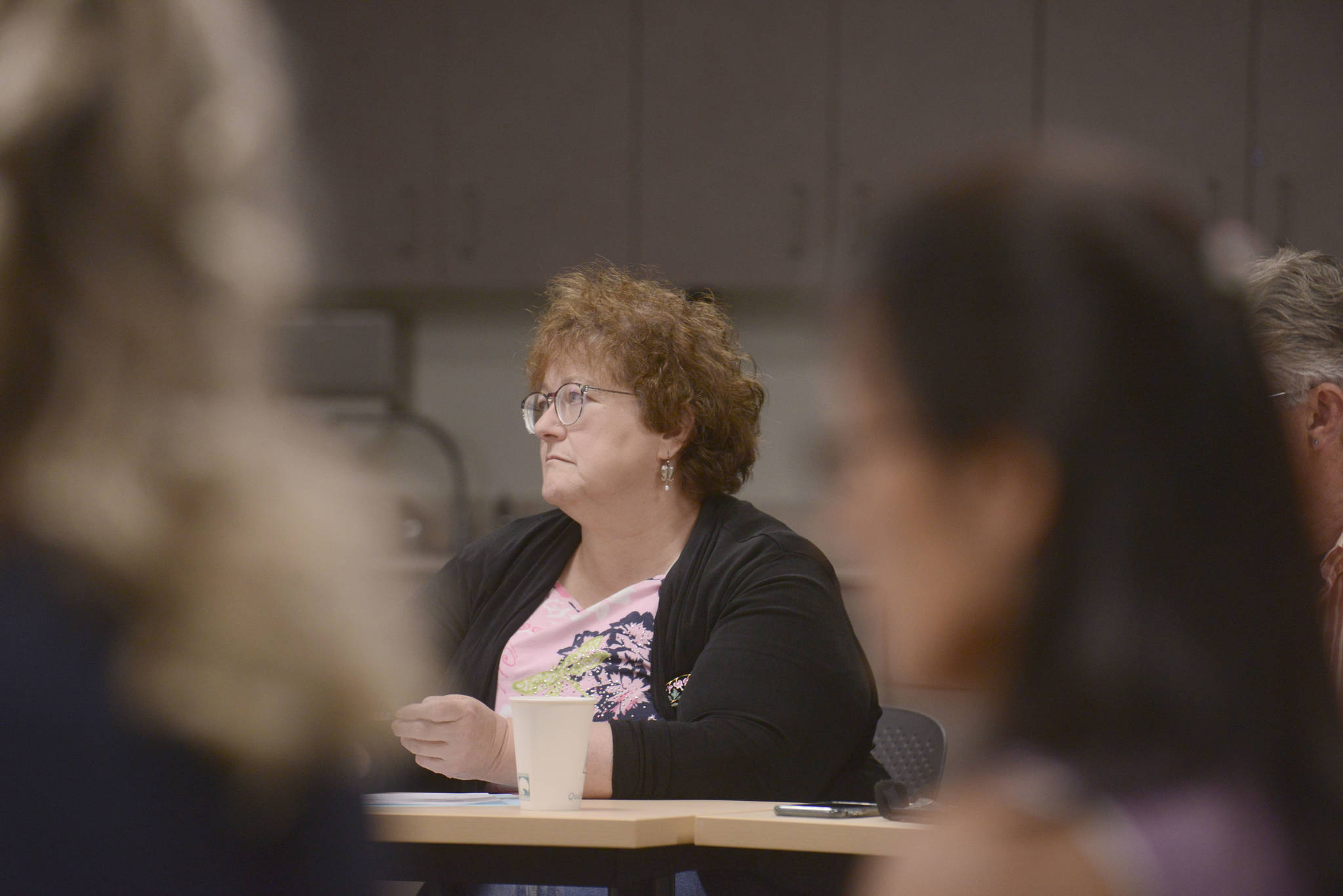A healthier lifestyle may just be a phone call away.
A free diabetes prevention program connecting peninsula residents with lifestyle coaches via telephone is slated to be up and running by the end of the month.
Funded by the Centers for Disease Control and Prevention and administered by the National Association of Chronic Disease Directors (NACDD), the pilot program will provide year-long training and mentorship for those at risk of developing diabetes and who are looking to make lasting improvements to their health.
“This is a skill-building program that helps people to better understand how they can manage their lifestyle, and the outcome is prevention of diabetes manifested through weight loss,” Marti Macchi, NACDD senior director of programs, said.
Macchi was one of a handful of NACDD representatives who attended a July 18 gathering at Central Peninsula Hospital of state health officials, local health care providers and community members to discuss the program.
The event was organized by the Kenai Prevention Network — a newly formed community group that aims to introduce and implement positive lifestyle change opportunities to the Kenai Peninsula.
“We’ve been playing a role of support organization because it matches our mission to improve the health of our community,” director Sky Carver said. “We think this is a really good program.”
While the organization is still in its early days, Carver envisions a holistic approach to community health that engages a number of partners — including city and borough employees, the school district and hospital, he said.
Based on a CDC-approved curriculum, the prevention program aims to reduce participants’ weight through regular phone calls with trained mentors, who will provide guidance on a number of lifestyle changes — including healthier eating, increasing physical activity, improving problem-solving skills and stress management.
Participants check in weekly for the first six months, after which they will check in on a monthly basis. The program is available to adults with prediabetes who have a cell phone or landline.
“We are excited to test that type of delivery method because the handful of diabetes prevention programs that we have in the state are all in-person programs,” Nim Ha, program manager for the Alaska DPHSS Diabetes Prevention and Control Program, said. “It brings up an issue of access for people.”
Ha said the five-year program aims to enroll 50 participants and five mentors in its first year. The program currently has about 20 enrollees and has trained two mentors, with several more working on completing the course.
Caused by high levels of glucose in the blood, diabetes has become a national epidemic. Approximately 30 million people, or 9.4 percent of the U.S. population, were diagnosed with the disease in 2015, according to the CDC’s 2017 National Diabetes Statistics Report.
The chronic disease can cause serious health complications, including heart disease, stroke, kidney disease, blindness, leg and feet amputations and early death.
In Alaska, diabetes was the eighth-leading cause of death in 2016, with 122 deaths attributed to the disease, according to the Alaska Department of Health and Social Services’ 2016 Vital Statistics Annual Report.
Prediabetes, or when a person’s blood sugar level is higher than normal but not high enough to be diagnosed with type 2 diabetes, is even more prevalent nationally. In 2015, the CDC estimates 33.9 percents of adults 18 or older — 84.1 million people — had prediabetes, which increases the risk of developing long-term health complications, including heart disease, stroke and type 2 diabetes.
According to the Alaska Behavioral Risk Factor Surveillance System 2016 survey, 11.1 percent of Alaskans and 11.9 percent of Kenai Peninsula Borough residents reported having prediabetes.
Leslie Felts, nurse manager at the Kenai Public Health clinic, attended the July 18 meeting and said any action that can be taken to prevent the debilitating disease is welcome. Kenai public health nurses have distributed information to clients as well as health care providers and doctors, she said.
Kenai public health nurse Tami Marsters said patient response to the program has been positive.
“They seem pretty welcoming and interested,” she said.
Leslie Shallcross, University of Alaska Fairbanks Cooperative Extension faculty member, has been working to get the word out around the peninsula by attending community events, going to senior centers and health fairs and reaching out to providers.
Shallcross said the program isn’t meant to be prescriptive, but to provide peer support as participants work to lose weight and curb their chances of developing diabetes.
“This approach does work — there’s very good research (showing) that losing a small amount of weight, as well as lifestyle changes, changes in your diet, changes in your physical activity and changes in stress … help to lower blood sugar levels,” she said.
Mentors don’t have to be health care professionals, but must complete online training modules to prepare for the job. They also are given background checks and calls are monitored to ensure they are following the program’s guidelines.
Homer resident Kelly Behen met Shallcross through a chronic disease self-management program and was asked to participate as a mentor. Behen, who works at the Pratt Museum in Homer, has a human services degree and was excited to help others.
“It’s a really neat,” she said. “I’m really excited because it’s something I really haven’t done and I think it will be interesting.”
Being a mentor is also motivating Behen to make healthy changes to her lifestyle.
“I’ve already started setting some goals. And am actually weighing myself weekly and following some of the things that they will be recommending to the people that are enrolled in the program,” she said.
Reach Erin Thompson at ethompson@peninsulaclarion.com.

